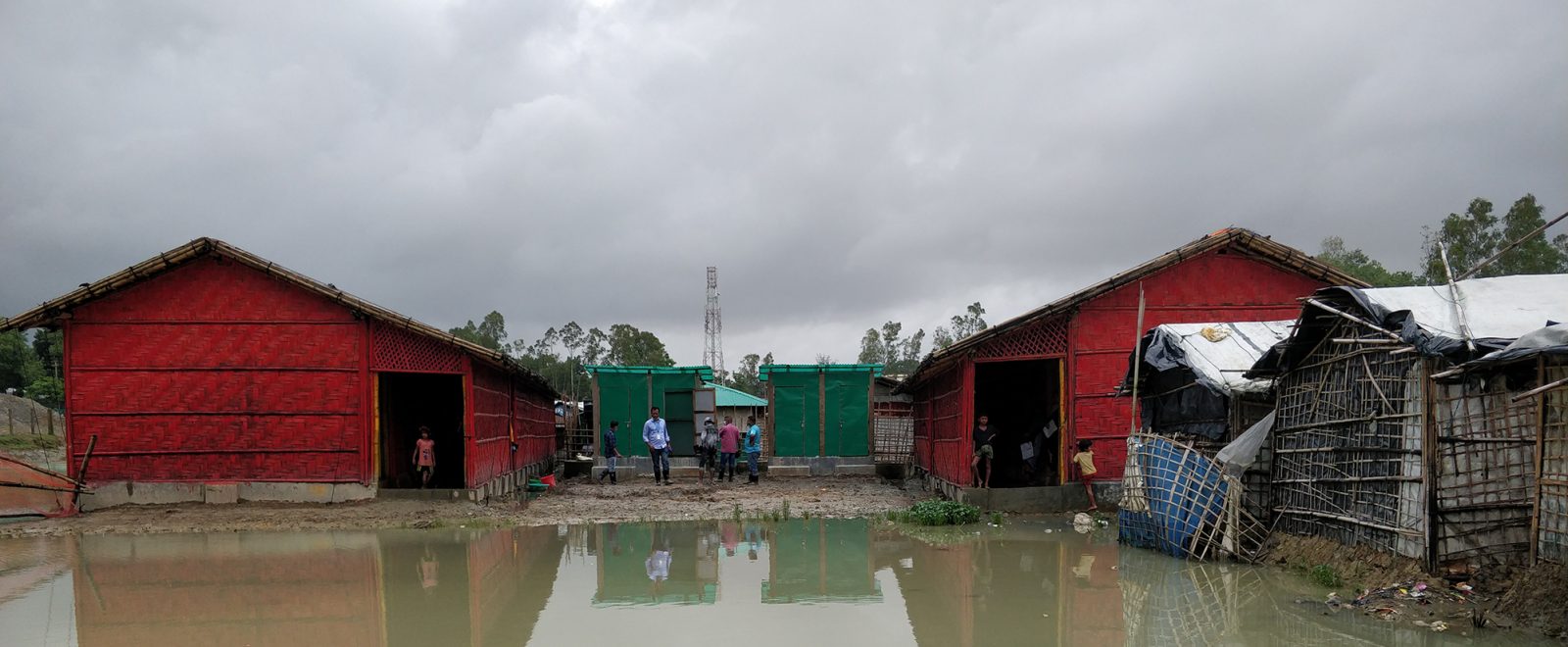Heavy rains have caused severe flash-flooding in north-eastern Bangladesh, disrupting transport and communications networks, clean water facilities, and devastating communities. ActionAid Bangladesh is providing lifesaving support to the families in some of the worst-affected areas.
Several reports have indicated that more than 4 million people are trapped because of the flooding in the Sylhet and Sunamganj districts, with extremely limited access to food and water. More than 63,000 people have already been reported to be displaced from their homes and the number is increasing by the minute.
Bangladesh is one of the most climate-impacted countries in the world and is at constant risk of severe flooding. Despite efforts by the government, development agencies and local communities, loss and damage associated with climate impacts are increasing every year.
Farah Kabir, Country Director of ActionAid Bangladesh, says:
“The situation is utterly devastating and far worse than we’d initially thought. This is the second time in a month that parts of Bangladesh have been devastated by flooding and lives have been put at risk. We are doing what we can to support the people affected right now, but it is imperative that governments around the world recognize that it’s the people in the poorest communities who are hit the hardest by a climate crisis they did not cause.
“The global efforts continue to fall short in limiting carbon emissions but failing to respond to the impacts of climate crisis such as the one taking place in Bangladesh, will continue to cost lives of women, men and children. Governments in the global north must take responsibility for the loss and damage they are causing on the other side of the world.”
Homes, schools and government buildings have been flooded, leading the government to postpone the upcoming Secondary School Certificate Examination, impacting the lives of millions of young women and men. Where schools haven’t been flooded or partially flooded, families are using them for shelter. But shelters are getting overcrowded and there aren’t any separate spaces for men and women. This is putting women and children, who are the most vulnerable in any disaster context, at risk of gender-based violence, and psychological and other harm.
Access to the impacted areas by road and air is limited, and humanitarian aid workers are mainly having to gain access by boat. Electricity and mobile networks have been largely cut-off, and clean water sources and sanitation facilities have been damaged. Most health facilities have also been disrupted, making it extremely difficult for people who have been injured to get the care they need.
ActionAid, through its women-led approach, is currently providing emergency relief in Sunamganj. It will be supplying dry food, non-food items including water purification tablets, and hygiene items, such as soap and sanitary towels, to those affected. ActionAid’s response will also work towards reducing gender-based violence through creating safe spaces for women and young girls.
For more information and interviews contact Samantha Bandak, Media Manager, on samantha.bandak@actionaid.org


